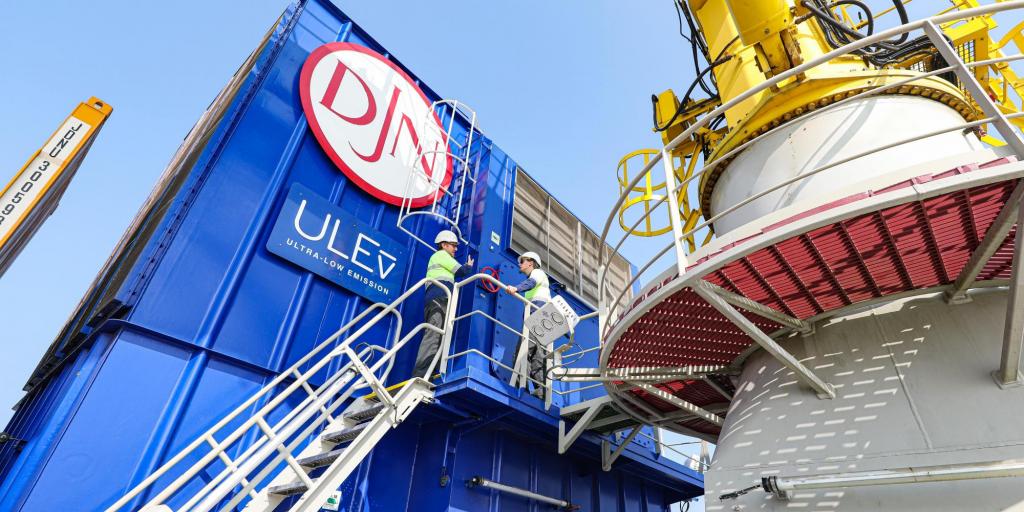Bureau Veritas (BV), a world leader in testing, inspection, and certification, has developed a new notation to recognize the performance of ultra-low emission vessels (ULEvs). Jan De Nul Group’s newest Trailing Suction Hopper Dredgers, Sanderus, Ortelius, Tristão Da Cunha, Afonso De Albuquerque, Diogo Cão have now become the first ships to receive this recognition.

The Jan De Nul units are specifically designed for ultra-low emissions, including installation of a two-stage catalytic filter system, and can outperform the most stringent low emissions operational policies.
The ULEv notation is Bureau Veritas’ newest recognition for ultra-low emission vessels. It can be assigned to ships that exceed existing MARPOL requirements for lowering pollutant emissions. The voluntary notation accounts for air quality, including hydrocarbons, carbon, NOx and particulate matter, as well as particle numbers. For ship owners looking to distinguish their fleets, the ULEv notation helps demonstrate a real and significant commitment to environmental protection.
Laurent Leblanc, Senior Vice President Technical & Operations at Bureau Veritas Marine & Offshore commented: “Preserving our environment is nowadays at the heart of all innovation strategies. Thanks to Bureau Veritas expertise and our environmental commitment, we have pioneered the development of rules for low emission vessels and today we are very proud to accompany Jan De Nul on their sustainability journey. BV welcomes the initiative taken by Jan De Nul to make their vessels more environmentally efficient than the requirements of applicable maritime regulation. Bureau Veritas is proud to support and work with ship-owners on their sustainability journey.”
Patrick Jan, Product Manager at Bureau Veritas Marine & Offshore, explained: “The Bureau Veritas additional class notation ULEv (for Ultra-Low Emission Vessel) is the most advanced set of requirements regarding the capacity of a ship to emit gaseous pollutants and particular pollutants at a very low level. It is certainly a significant milestone on the path to reducing maritime environmental impact.’
As well as design solutions, Jan De Nul Group is adopting 100% renewable fuel, as a certified sustainable substitute for fossil fuel made from waste flows. Since the end of 2019, its first Trailing Suction Hopper Dredger in Zeebrugge has been operating on 100% biofuel. Jan De Nul Group is considering this switch for other dredging vessels.
Michel Deruyck, Head of Energy at Jan De Nul Group: Air pollution is one of the biggest dangers to public health. Marine construction activities are mostly situated in the vicinity of coastlines, ports and harbours, and densely populated areas. Even if the dredging industry accounts for only 0.1% of the total emission of global shipping traffic, we feel personally involved in this issue and regard it as one of our core missions to do something about it.
Jan De Nul focuses on minimalizing the footprint of its maritime activities on ambient air quality and climate, and therefore designs its latest vessels fitted with a highly advanced exhaust gas filtering system by means of a Selective Catalytic Reduction (SCR) system and a Diesel Particulate Filter (DPF). This new notation demonstrates our commitment to a cleaner, greener shipping sector.
First published in 2019, Bureau Veritas developed the ULEv notation by carefully adapting the European Commission's Stage V policy for emissions reduction to the specific needs of sea-going vessels. Originally developed for internal combustion engines for non-road mobile machinery – including inland vessels – Bureau Veritas’ experts have reworked the existing requirements to develop an exacting set of standards for seagoing ships. Jan De Nul’s new dredgers reflect a commitment to focus on air quality and minimization of their operational impact.
Source: Jan De Nul